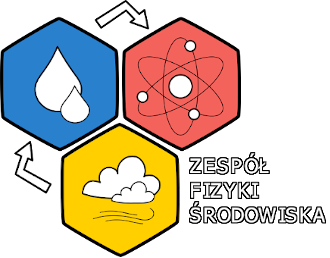Assessing the potential of full isotope analyses of water (deuterium, oxygen-18 and oxygen-17 content) in hydrology
Grant No. 2016/23/B/ST10/00909, National Science Centre, research project OPUS
Project title:
“Assessing the potential of full isotope analyses of water (deuterium, oxygen-18 and oxygen-17 content) in hydrology”
Period of execution: 01.09.2017 – 31.08.2020
Summary:
The project is aimed at thorough assessment of the potential of full isotope analyses of water (d2H, d18O and d17O) in groundwater and surface water hydrology. In the framework of the project two research hypotheses are tested:
- We hypothesize that 17O isotope composition of water is a useful, additional isotope parameter guiding the process of identification of various genetic types of groundwater.
- Heavy stable isotopes of hydrogen and oxygen (2H and 18O) have been used in the past for quantification of water budgets of lakes and other surface water bodies, in particular for the assessment of underground components of those budgets which are very difficult to quantify using classical hydrological methods. We hypothesize that applying three isotope tracers simultaneously (2H, 18O, 17O) should make those budget assessments more reliable. Appropriate field study of a natural system will be conducted to test this hypothesis.
Testing the hypotheses formulated above requires comprehensive investigations conducted in the framework of four Workpackages entitled: (1) Full isotope characterization of different genetic types of groundwater in Poland (2) Triple isotope balance of a surface water body, (3) Laboratory determination of kinetic fractionation factors in the process of water evaporation, and (4) Full isotope analyses of daily precipitation collected in Krakow and at Kasprowy Wierch stations.
The research conducted in the framework of the project will deliver new information about d17O and 17O-excess variations in various genetic types of groundwater in Poland. This is the first study of this type worldwide. Also, triple isotope balance of a surface water body has never been attempted so far. To the best of our knowledge, the scope and extend of the proposed project is without precedence as far as groundwater and surface water hydrology is concerned. It is expected that its implementation will provide valuable, new knowledge and new impetus for applications of isotope-aided methodologies in water resource development and management.



